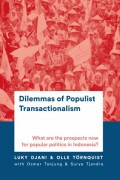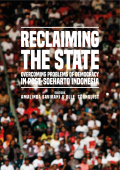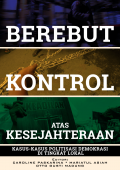How can we understand the form of political participation among Indonesians over the past years? From a general impression, it would be easy for us to conclude that political participation has increased as political rights, such as freedom of expression, freedom to form association, are now guaranteed.
The University of Gadjah Mada, in cooperation with Oslo University, held a 2014 democracy survey. The result of the survey conducted on 600 respondents indicated that political participation of the public in Indonesia has certainly advanced.
There has been ongoing discourse regarding whether the next government should form a “fat” or “slim” Cabinet, but what we really need is a “smart” one.
A smart Cabinet would ensure the government’s workability amid the country’s complexity. In our presidential system, the president is tasked with realizing his/her vision during his/her fixed term of five years. Therefore, the president’s Cabinet is a mere instrument to meet his/her promises.
The idea of a smart Cabinet has become more important than ever as the governance paradigm here has shifted from controlling to steering. Its institutional setup has been highly decentralized.










